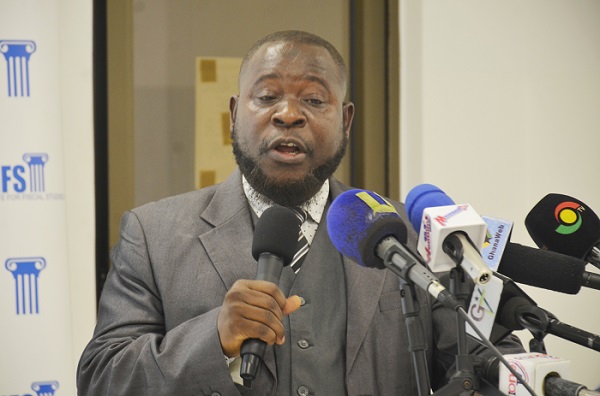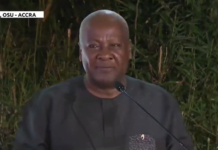
The Institute of Fiscal Studies (IFS) has criticized what it describes as an overreliance on taxation for revenue mobilization in the 3 billion bailout agreement between the international monetary fund IMF and the Government of Ghana.
Ghana on May 17, received executive board approval for a 3 year, 3 billion dollar extended credit facility from the international monetary fund.
A program the IMF says is expected to restore macroeconomic stability and debt sustainability while laying the foundations for higher and more inclusive growth.
However, addressing the media on its review of the program, Acting Executive Director and Senior Research Fellow of the Institute of Fiscal Studies, Dr. Said Boakye says despite the institute’s backing of fiscal reforms such as the review and subsequent streamline of statutory funds and a comprehensive review of government’s flagship programme, the overreliance on taxation poses long term harm for growth and businesses.
“The structural fiscal reforms that the program proposes are broadly appropriate, and many accord with IFS’ recommendations to the government over the years”, Dr. Boakye iterated.
“We are glad that a key structural reform benchmark in the program is that the government should conduct a comprehensive review of statutory funds to assess their relevance and streamline them. We further support that planned comprehensive review of the government’s flagship programs”, he added as some strengths the Institute had seen as part of the program.
The Institute however had issues with what it described as the over reliance on taxation for revenue mobilization.
“The program’s effort to increase government revenue mobilization relies unduly on taxes. As a prior action for the program, many taxes were introduced in the 2023 budget and more are likely to follow under the tax-centered revenue strategy. Yet, overreliance on taxation is certain to hurt business and industries, and ultimately harm the economy’s competitiveness and long-term growth potential”, IFS warns.
IFS is therefore admonishing the government to take steps to increase extractive sector revenue as an alternative to taxation.
“Given the great potential for Ghana to expand revenue generation from the extractive sector through active state participation or the production sharing arrangement. The medium-term revenue strategy to be prepared as part of the program with the IMF should include plans to change from the present dominant royalty-tax revenue model under concession regime in the extractive sector to one based on active state participated/ownership in the sector in the form of joint ventures, or one based on production sharing arrangements”, Dr. Boakye proposed.
IFS says greater participation in the extractive sector would in addition to increasing domestic revenue would potentially increase foreign exchange inflows to stabilize the cedi.
Source: Ghana/Starrfm.com.gh/103.5FM/Edem Kojo




